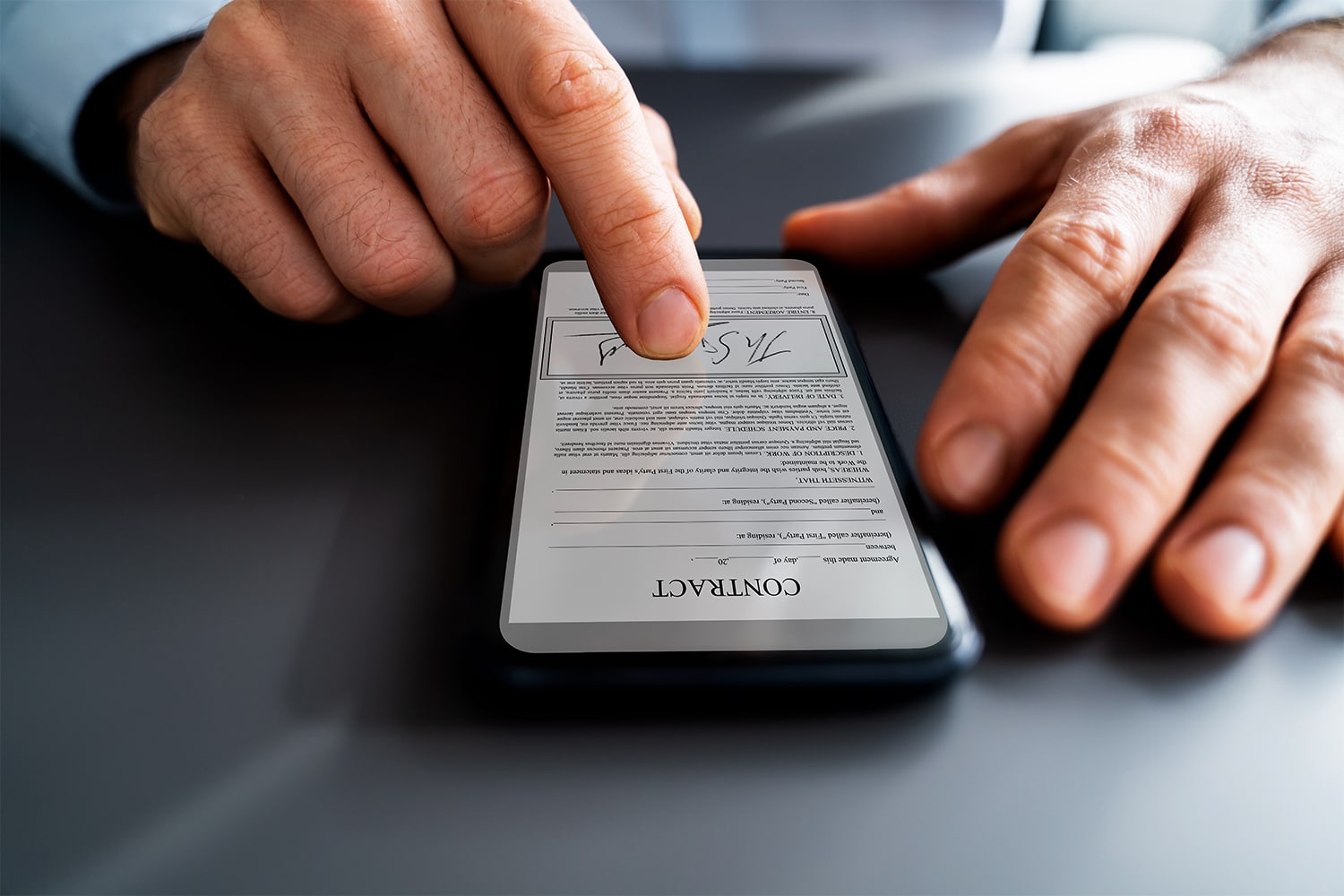We explore how MFA Fatigue attacks work, how they impact businesses, and what measures you can take to protect your organization.
SECURE – The United States newly passed remote notarization bill
The new social and labor realities resulting from the covid-19 crisis have accelerated the passing of a law that allows notaries to verify documents remotely.
A
n essential part of a notary’s ministerial duties is to verify the identity of any person who needs to sign a will, power of attorney or a property deed. As an authorized and impartial witness, the notary ensures that the entire procedure complies with the law in a timely manner. Traditionally, when a document had to be notarized, the interested party had to find an available practitioner to physically witness the signature, which served as the basis for its authentication. The new needs of an increasingly digital society and the desire to make better use of people’s time have forced the development of legislation that allows remote online notarization (RON). This technological advancement virtualizes the communication, verification and recording of processes, although it must meet certain requirements.
Recently, the U.S. House of Representatives passed a remote online notarization bill. This bill, known as The Securing and Enabling Commerce Using Remote and Electronic Notarization Act (SECURE), establishes the regulatory framework for notaries to act virtually. Until the beginning of 2020, only 16 states had enabled this possibility. By August 2022, 40 states had already put in place the necessary RON structure. The SECURE Act, spearheaded by two senators, Mark R. Warner and Kevin Cramer, will complement these regional legislations and clear the way for the procedure to be possible at a national level for the first time in history. SECURE, pending final approval by the Senate with no specific date set yet, will enable all U.S. notaries to authorize RONs, although they will be required to use specific technology to process the evidence that shields against any type of fraud. The user should have no doubt that the signature will be carried out with the same guarantees as it would have with the notary present.
Several representatives from the sectors most interested in making SECURE a reality are optimistic about the outcome of the law, and hope that 2023 will be the year in which it crystallizes. Diane Tomb, CEO of ALTA, an association representing more than 6,000 insurance companies, believes that “the House has taken a big step toward establishing a more modern notarization system that leaves no one behind” because “unfortunately, too many consumers and businesses in several states still do not have access to the technology that allows them to execute critical documents remotely.” Robert Broeksmit, president and CEO of the Mortgage Bankers Association (MBA) points out that the legislation creates the minimum standards for RONs that are consistent with maintaining secure mortgage industry standards.
SECURE requires U.S. authorities to recognize and protect remote notarizations and sets out in detail the necessary technical requirements, including those for the creation and preservation of audio and video recordings between notaries and clients or methods of tamper prevention and multi-factor authentication. The legislation also considers the possibility of notarizing documents involving individuals outside the territory of the United States, as long as a series of steps, aimed at ensuring the correct performance of the procedure, are complied with.
In remote notarization, the signer provides identity information that only the person in question possesses, and the notary digitally seals the document in real time, using only the custody technology recognized by public organizations. In other words, SECURE broadens the possibilities for notaries to act digitally, but at the same time subjects them to comply with a series of rules on transparency and data storage during specific periods of time. What is essential is that the notary can continue to verify the identity and judgment capacity of the subject, perform advisory tasks, and control the legality of the procedure in the same manner as if it were done face-to-face.
A study in the states in which these types of laws have long been governing (such as, North Carolina, which has had remote notarization rules since 2005) has shown a very positive impact overall, despite the suspicions of certain sectors that feared an increase in fraud and security breaches. The authorization of RON streamlines banking transactions and the most common financial and real estate operations, making time and geographical barriers more flexible.
SECURE seeks to standardize procedures, with the highest levels of institutional protection, and is the cornerstone of a practical, modern, and inclusive approach to a group that still suffers from certain mechanics anchored in the past.

























